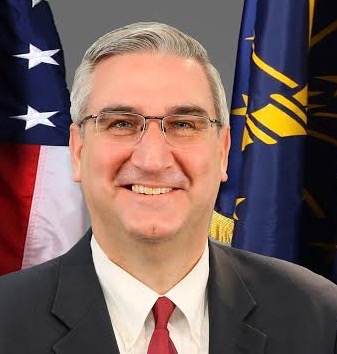Holcomb And Rush Unveil Improvements For Executive And Judicial Branches
At a bill signing for legislation that creates sexual harassment prevention policies for the Indiana General Assembly, Gov. Eric J. Holcomb and Chief Justice Loretta Rush shared changes to sexual harassment training policies for the state’s executive and judicial branches.
“In light of the many recent, high-profile sexual and workplace harassment cases, it makes sense for all branches of government to take a look at their own policies. There’s zero room for harassment of any kind in Indiana’s state government workplaces, and I’m proud of the work we’ve accomplished to ensure that message is loud and clear in the legislative, executive and judicial branches,†Gov. Holcomb said.
The governor signed House Enrolled Act 1309 in his office today with the bill’s author state Rep. Karen Engleman, Senate sponsors Sen. Jim Buck and Sen. Tim Lanane, and co-author Rep. Cherrish Pryor. The bill requires annual sexual harassment training for all members of the General Assembly.
Following the signing, Holcomb outlined changes to the state’s executive branch harassment prevention policies—all of which will be focused on modernization, increasing the culture of professionalism and civility, and empowering bystanders to speak up if they see something inappropriate. Changes include
- Recognizing that organizational culture is set at the top, state agency heads will complete annual training workshops focused on workplace harassment, conduct, and civility.
- Managers and supervisors at all levels will receive additional sexual harassment training as part of a new program under development by the Indiana State Personnel Department to launch this summer.
- All state employees are currently required to complete computer-based training on an annual basis and during new employee onboarding. This training module has been updated and will be launched in May.
Indiana Supreme Court Chief Justice Loretta Rush outlined a strengthened Judicial Branch policy focused on civility. Chief Justice Rush explained, “Past sexual harassment training often focused on what behavior was illegal. By emphasizing whether the offensive behavior was illegal, employers appeared to condone harassing behavior if it did not expose them to liability. Training for Judicial Branch employees will make clear our expectation is for an environment free of sexual harassment, intimidation, disrespect, and uncivil behavior.â€
Changes include:
- A revamped policy distributed by the Chief Justice to all Supreme Court employees.
- An online complaint form for employees to more easily report problems immediately.
- An increased emphasis on civility in all curricula dealing with harassment.
Â





